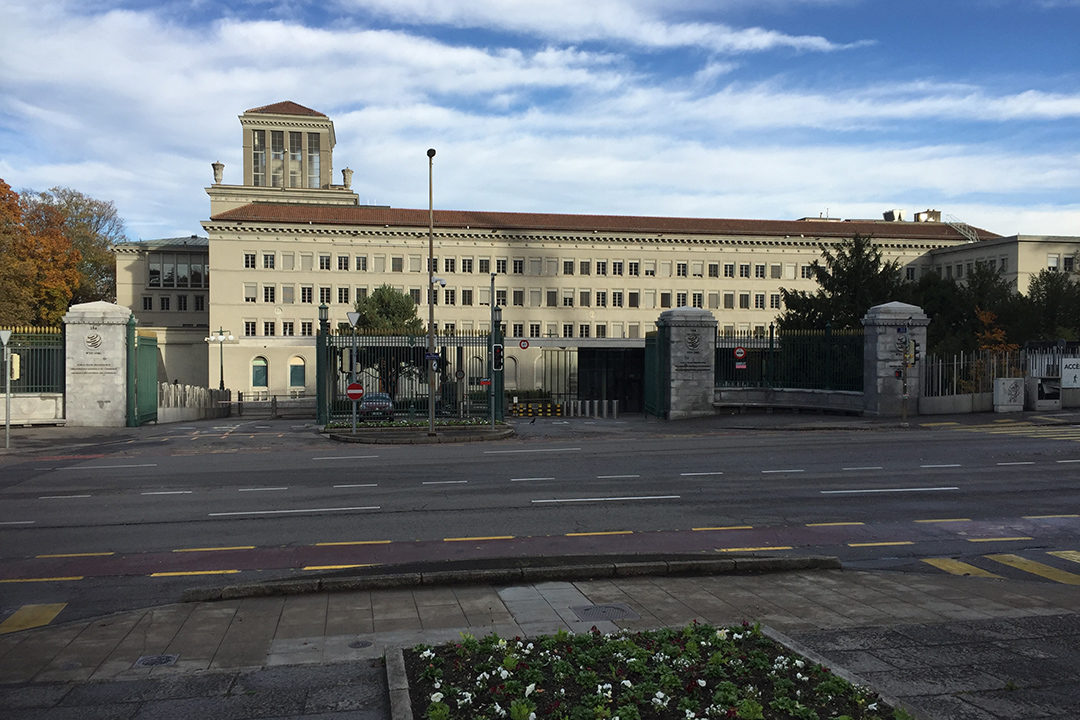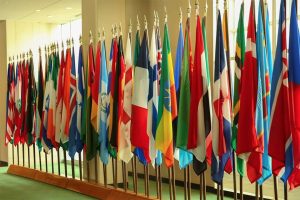By Alice Tipping, Director, Trade and Sustainable Development, IISD
The 13th Ministerial Conference (MC13) of the World Trade Organization (WTO) is an international meeting of the organization’s 164 member governments, to make decisions on the multilateral rules underpinning the international trading system. Taking place from 26-29 February 2024 in Abu Dhabi, United Arab Emirates (UAE), MC13 will convene ministers and delegations from around the world, to update the WTO’s agreements on trade policy, review the functions of the multilateral trading system (MTS), and define the agenda for the WTO’s future work. The Conference will be chaired by UAE’s Minister of State for Foreign Trade Thani bin Ahmed Al Zeyoudi.
The Ministerial Conference is the highest-level decision-making body of the WTO, and under the Marrakesh Agreement it must meet every two years.
Since the WTO was established in 1995, there have been 12 conferences, with mixed success. After MC12 in Geneva, Switzerland, a landmark decision which set new global rules to curb harmful subsidies and protect global fish stocks, has rejuvenated the negotiating arm of the multilateral trade system, and demonstrated that environmental issues can and should be discussed at the WTO.
What is top of the agenda?
Fisheries subsidies: At MC12, governments agreed on rules targeting the situations in which subsidies are the most dangerous for sustainability: illegal fishing; overfished stocks; and unregulated high-seas fisheries. MC13 presents a crucial opportunity for WTO members to complete this agreement with broader rules addressing subsidies more comprehensively. These rules are crucial to better tackle the underlying role of government subsidies as a driver of overfishing. Read more.
WTO reform: MC13 will grapple with many critical issues, but one major focus will be overarching: how do governments want to use this organization? First on the agenda is improving and reinvigorating the organization’s unique system for settling international trade disputes. This system has been stuck for several years because of disagreements about how it operated.
The second big issue is whether and how new plurilateral agreements among sub-sets of members should be incorporated into the WTO’s set of treaties. One new treaty, on Investment Facilitation for Development, is ready to be incorporated, and MC13 presents an opportunity to find a path forward.
A third critical discussion revolves around Special and Differential Treatment (SDT), the more flexible treatment that developing country members can receive in trade agreements. But there is an ongoing debate on which flexibilities other developing countries should receive, and whether countries can continue to self-designate as developing countries. Read more.
Agricultural negotiations: MC12 delivered two important outcomes on food security: a Ministerial Decision on World Food Programme (WFP) Food Purchases Exemption from Export Prohibitions or Restrictions – the WFP Exemption, and a Ministerial Declaration on the Emergency Response to Food Insecurity. MC13 is a crucial opportunity for WTO members to set a useful direction for a new phase of the WTO agriculture negotiations, as well as to achieve concrete outcomes that benefit least developed countries (LDCs) and level the playing field, including through a commitment to exempt LDC food purchases from export prohibitions or restrictions. Read more.
Why does MC13 matter?
Overall, while nations grapple with the economic fallout of the COVID-19 pandemic and seek collective solutions for sustainable development, MC13 serves as an opportunity to set the course for the WTO’s role in facilitating fair, inclusive, and resilient global trade.
The decision on fisheries subsidies at MC12 was the first WTO agreement to place environmental sustainability at its core. If additional rules are agreed at MC13, this would mark the completion of a landmark agreement for global sustainable development.
Members are also close to agreeing on a revamped system for settling international trade disputes, as part of the reform of the WTO. A fairer, more efficient system would help smaller countries, in particular, settle disputes with more powerful trading partners. For the first time, the agenda of the ministerial includes discussions focused on both the environment and inclusivity in trade policy. The fact that these issues are squarely on the agenda is a step-change in how the multilateral trading system defines its role in the world.
The forces pulling governments away from collaboration are strong. At MC13, the global trade community has the opportunity to find a way back to cooperation, paving the way for more constructive conversations about economic development which includes everyone, while preserving the environment and shifting policy trajectories towards a more equitable and sustainable global economy.
* * *
Will you be at MC13? Or do you have an interest in the intersection between trade policy and sustainability?
IISD is running the Trade + Sustainability Hub, to convene impactful discussions on climate, nature, and development, alongside MC13 in Abu Dhabi. You can join us in person or online by registering here.

